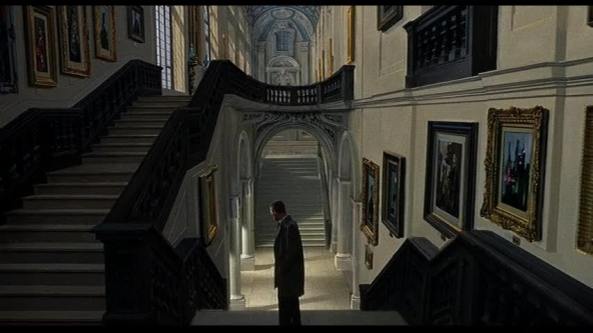I don’t think I ever thought this day would come: the day that I would find an Alfred Hitchcock movie I didn’t like.
They say that Hitchcock’s last perfect film was “The Birds” in 1963, and from then on he struggled with old age and a changing of the guard in Hollywood to more jarring, violent and hyper kinetic films. Although I’m still very keen on “Frenzy,” with something like “Torn Curtain,” how is Hitchcock really supposed to compete when the rest of the world is looking to James Bond for their suspense?
“Torn Curtain” struggles because it finds Hitch trying to adapt to New Hollywood and the surrounding culture, but in completely the wrong way. With “Frenzy,” Hitch would embrace the despicable sexual instincts of his murderers and what they would be realistically likely to do to his blonde-bombshell victims. Here, Hitchcock tried to make his film as tied to the Cold War as the 007 movies, and he dips his toe into a pool he never had before: politics.
The film stars Paul Newman and Julie Andrews (I mean, with a cast like that, why the hell wouldn’t I love this! But alas) as an engaged pair of nuclear scientists in the height of the Cold War. The two are in Norway for a conference when Newman claims he has to go to Stockholm on sudden business and has to leave Andrews behind, but we soon find out that he’s actually heading to East Berlin, which as Andrews astutely points out, is behind the Iron Curtain.
We learn that Newman plans to defect to the Soviets after the U.S. cancelled a project of his that would help defend from nuclear attacks. Andrews, who has followed him here, is dumbfounded but agrees to stay in an attempt to convince him to come back home. What she doesn’t know is that Newman is actually a double agent, only appearing to be defecting so that he can steal secrets from a famous German scientist who has figured out this defense weapon.
Hitchcock is trying to tie “Torn Curtain” to dealing with the occasionally conflicting ideas of loyalty and values, in this case between his country, his work and his romance, but it lacks the clear narrative dilemmas and “what if” scenarios that typically made Hitchcock’s films Hitchcockian. What’s left is a movie that feels not quite as political or conspiratorial as we would hope. Newman is not a dynamic spy, and Andrews is not a ravishing Bond girl.
That doesn’t mean “Torn Curtain” is without ambitious, impressive moments. There’s a clever scene inside a Berlin museum that is wonderfully memorable. The building is completely empty, but the footsteps of Newman’s pursuer resonate throughout the desolate, immense and colorful halls to show suggest he is never alone in this Big Brother state. Other suspense elements teetering on Newman scratching math problems on a chalkboard, a bus slowly approaching their fake bus or an annoying Polish woman looking for a sponsor, feel shockingly dull in comparison.
So yes, it’s come to this. Hitchcock, it would appear after long last, is human too.

Marnie, this and Topaz was a horrific run of form by his standards